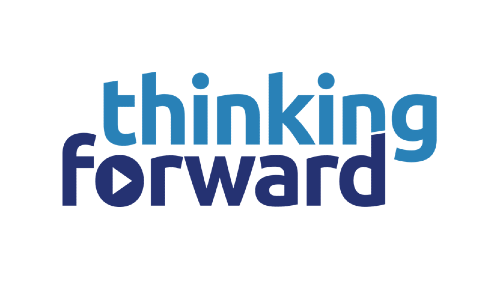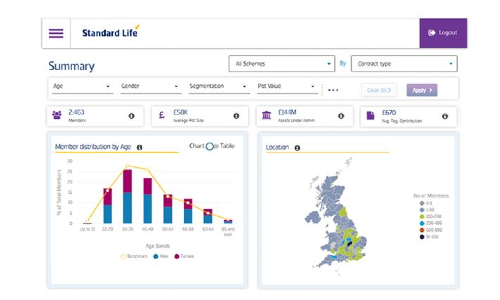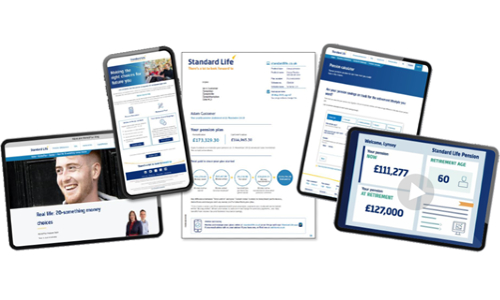Corporate Adviser: 10 Years of Auto-enrolment: Perspectives with Gail Izat, Managing Director, Standard Life
John Greenwood, editor, Corporate Adviser [00:00:12.720]
Hello and welcome to this video series reflecting on ten years of auto-enrolment.
I'm John Greenwood, editor of Corporate Adviser, and I'm joined today by Gail Izat, managing director workplace at Standard Life.
Gail, here we are ten years into auto-enrolment and it's generally considered to be a roaring success but what particular aspects of auto-enrolment do you see as particularly positive?
Gail Izat, managing director workplace, Standard Life [00:00:35.560]
So listen, I think you can't doubt that auto-enrolment has been a fantastic success and has actually revolutionised pension savings for millions of customers. And we can see that from the stats.
So in 2010, 2012, you had around 43% of people who were inputing into a private pension. And if we look at the most recent data that we've got, that's moved up to 57%.
But actually, if we look at workplace pensions, we can see that the average now is 88%, and that was at 43% ten years ago. MG comment – figure is actually but as Gail as underquote that is ok and just an error in comment made
So I think the biggest change that you can see is for that younger demographic. So if we look at the 22 to 29 year olds, that now sits at about 86% participation, and actually ten years ago that was vastly less, I think around about 24%.
So I think that shows the benefit of getting people saving sooner.
And we know that that can have a dramatic impact actually on the outcomes that they can achieve.
And we've done some sort of basic research that showed that a 22 year old who saves into a pension on an average salary of, say £25,000 could have a pension of around £450,000 by the time they retire if we assume average pay increases and investment returns.
And that same person, if they started when they were 30 on £33,000, could have almost £100,000 less. So I think that shows you that the benefits of starting younger, but also that sort of the success of auto-enrolment.
However, I think we still do have gaps. So we know that for the self-employed, we know that over the ten years participation rates have halved from 40 to 20.
We know that ethnic minorities and lower paid people are not participating. We've got the gender pension gap that we know is at play. So I think there's something like 9.8 million part-time female workers as opposed to 5.8 million male part-time workers. And those female workers are more likely to fall under the £10,000 threshold.
JG [00:02:41.480]
Okay, so we've got that positive story on coverage, but with still some gaps there. What else would you like to see looking forward to the next ten years of auto-enrolment?
GI [00:02:49.840]
So I think there's definitely some sort of structural elements that we would like to change. So firstly, I've just talked about the benefits of getting people saving earlier and the massive impact that can have on their outcomes. So we'd like to see the age of 22 reduced to 18.
We'd also like to see the minimum earning thresholds removed. So that's around about £6,000 at the moment. We believe if you got rid of that, that you would actually be able to make many more people saving and actually that would have a dramatic impact on their outcomes.
So we're delighted when the pension minister, Guy Opperman I think on the 6th July said that the recommendations of the 2017 auto-enrolment review would be enacted by the mid 2020s. But that's not far away and there's been a lot of political turmoil, so I think it's for us in the industry to absolutely make sure that we keep that at the top of the political agenda.
JG [00:03:48.200]
Obviously extending the scope of auto-enrolment is one thing, but obviously there's a cost of living crisis at the moment so there's a challenge there. How do we get around that?
GI [00:03:56.440]
Well it's absolutely acknowledged that times are tough at the moment and every penny counts and people are quite often making really tough decisions.
However, I do think we need to take action because if we don't then the gap between the pension haves and the pension have nots is only going to accelerate.
JG [00:04:14.440]
Sure. Then we've got the small pots issue. Obviously auto-enrolment created lots and lots of pots. Somebody joining the workforce today can expect, I think figures show around twelve pots and jobs through their working life but obviously they leave these behind when they leave their jobs.
Obviously this can have a detrimental effect on the outcomes for their pension and for their connection with a pension. So what should we be doing about that?
GI [00:04:38.440]
There's been lots of discussion as an industry, lots of solutions with pros and cons. I think from a Standard Life perspective on balance we believe in the pot follows member.
So what we would suggest is that parts of a certain value if you leave your employer that they will automatically follow you to your next pension. We believe that this has got the benefit that if implemented efficiently, it's easy for the consumer to understand it makes sense to them and avoid some of the complexities in the other solutions.
And also it can get rid of some of the concerns around value for money because in a charge cap scenario that will be reduced. Some of the issues we've got with some of the alternatives, for example the having visibility of all your small pots, we think that competes with the ambitions of the pensions dashboard.
And also the idea that you'll have a sort of a special consolidation scheme. Again, we think that might distort competition and also it might remove the desire to sort of invest in your proposition for those people that are running those sort of consolidation provisions.
JG [00:05:44.120]
And then coming onto engagement. Obviously autonomous places a lot of risk onto the individual member compared to DB schemes. The nudge that's been so successful in getting those participation rates high involves in not engaging and that's been a success.
However, later in life people do need to engage in their pots. How are we going to square that circle?
GI [00:06:04.920]
Yeah, listen, I always say, I think auto-enrolment has succeeded because it's harnessed the inertia in the accumulation phase and that's been a great thing. And actually, in some respects, we should look at can we take that further?
So opting people into things like auto escalation, but it's not a cure all for everything. So we know that someone who's just saving the minimum into their pension, they're unlikely to have enough to give them a comfortable retirement that they like, and actually just contributing your pension is not enough.
We know that around 79% of people actually aren't actively doing any thinking or planning around their pension. And what that means is that as you approach towards the end of the accumulation phase, you are actually put into quite a complex and quite an active decision making pre-retirement and moving in retirement.
So if you've had a lot of disengagement, then that's going to be problematic. And we know from the research that we've done that really, most people are not taking advice, and I think it's something like only 14% of people accessing their DC pension have actually taken advantage of the Pension Wise service, and that's a real issue.
So it means that we can't take our eye off the ball of engagement and we really need to face into how we do that. Now, at Standard Life, how we think about engagement is if you want to engage people, you need to treat them like individuals, you need to be personal.
And the absolute start of that is using data. We hold a vast amount of data on our members. We use a segmentation model and then we share that with the employer, so that together we can design communication campaigns to engage their workforce.
And an example of that is we can show an employer whether their employees are on track for a moderate and comfortable or minimum retirement, and then that lets us design campaigns together that targets various segments, but you also need to talk to people in the way they want to be talked to.
So I think simplification is absolutely everything and we support the ABI standards on plain numbers and plain English. I do think, as an industry, there's much more we can do about that. And I have a real passion for trying to simplify pensions.
You need to think about the channels that you're going to talk to people. Increasingly, it's absolutely digital first, but actually, one of the trends that we've seen accelerate over lockdown is actually people want mobile first, so we control everything from that phone in our pocket and people want to do that with a pension. So not only do you want to look at information, you want to be able to actually take action on what you see there. So having fully transactional mobile capability, I think is absolutely vital.
And then the final point is it's actually much more than just pensions. So if you want to engage people in longer savings, you're going to have to be able to talk to them about other challenges. They've got everyday budgeting and so that's why we focus a lot on financial wellness and we've invested in things like open finance where people can bring all of their money together and be helped on things like everyday budgeting and seeing everything in one place.
And other items that we've done is we introduced, we looked at that sort of younger demographic where we found the biggest barrier for young people in engaging with pensions was frankly, they were more worried about how they were going to buy their first house. So one of the things they can access through our mobile app is a coaching tool to help them buy their first home.
And that's why I think thinking broader than the pension means that you can help people with problems that are relevant to them. And our hypothesis is that that will increase confidence and competence so people feel more comfortable about the long-term savings.
JG [00:09:48.120]
Thanks, Gail. Sounds like it's job well done so far, but still plenty more to do, particularly around engagement and around extending the scope for water auto-enrolment.
That's all we have time for.
Thanks very much.
GI [00:09:59.160]
Thank you.
 Clarity
Clarity Find out more about Thinking Forward
Find out more about Thinking Forward Discover Phoenix Insights
Discover Phoenix Insights Control
Control Meet the IGC
Meet the IGC More about Client Analytics
More about Client Analytics Confidence
Confidence App information for members
App information for members Download the campaign catalogue
Download the campaign catalogue


